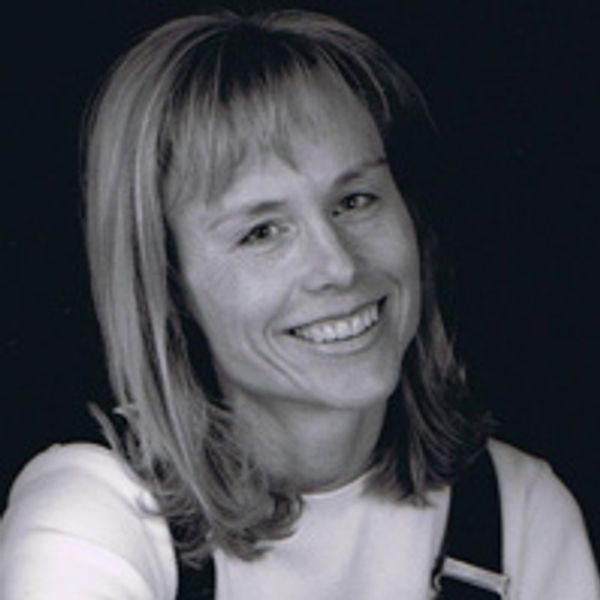Malak Mattar, Peaceful Reading (detail), 2021, acrylic on canvas
My Father, the Good Bull
My mother, a member of the Ayrshire Breeders’ Association, often compared my father to a bull. She would explain that he was such a fine bull, in fact, that she had been able to time each of our births almost to the day, just as she could time the births of her calves. A good bull, my mother would add, is mostly valued by the success of his offspring. I am always thankful for a good bull.
If any of my siblings or I did well in school or won a prize of any kind, she’d credit my dad. Even if I won a game of hopscotch, she’d say I had my father to thank. She said he was an excellent dancer and had perfect balance. How else could I have turned into such a good hopscotcher?
In fifth grade, when I won an art prize for drawing an imitation of Edvard Munch’s The Scream, she said, see? You got your father’s artistic gene. Never mind that my father thought the picture, painted in bright red and orange and pinks, was so hideous it would make anyone scream.
But my mother was right. My father was artistic. He was stylish too. He had an entire wardrobe of expensive hats, cuff links, and Italian suits, each one tailored perfectly to fit his body. My father loved to dress up for fancy occasions. And he loved to shop. Sometimes when he was on a shopping spree my mother would tell me that he was homosexual as well, adding that he had been kicked out of the Navy in World War Two for what she termed his friendship with an officer.
My mother began alluding to my father’s sexuality when I turned into a teenager, and she speculated that I might be gay. After all, I had short cropped hair and was so thin I was often mistaken for a boy. Sir, a clerk once said at the local department store. Do you think you really need that brassiere? My mother saw this as a sign.
With six children, she reasoned, at least one of her children would turn out to be gay. Why not me? But then she reasoned aloud that homosexuality might be like red hair or early balding. The gene could skip a generation or be passed on only by grandmothers to their grandsons. So my father’s grandmother might have been a lesbian. And then my future son or daughter could get the gene, depending on the leanings of my spouse. Genetics, my mother would sigh. They’re like a generation-skipping fund. You might not know the beneficiary yet. You just assume he will be there, waiting to receive his gift. And, in my mother’s opinion, gay men were a kind of gift. At least my father was, for her. Or, as she often put, he was a good bull.
But it wasn’t the gay gene that concerned my mother. It was my ultra-fat aunt. What if one of us got fat like that, my mother would worry. Why she must be 300 pounds at least, my mother said_. Like a corn-fed cow. And she has those babies. How do you think she had sex?_
Good Lord, Jane, my father would answer. Don’t make me picture that. Then he would tell her about a special harness designed for fat people to use during sex. It keeps the hips connected, he said. Otherwise they bounce apart like beach balls. My parents would laugh about this until they wept.

Nin Andrews is the author of six poetry chapbooks and six full-length collections, most recently The Last Orgasm (Etruscan Press, 2020). The other works are titled Why God is a Woman, The Book of Orgasms, Why They Grow Wings, and Midlife Crisis with Dick and Jane. She is also the editor of a book of translations of the Belgian poet Henri Michaux, Someone Wants to Steal My Name (Cleveland State University Poetry, 2004). Her poems have appeared in four editions of The Best American Poetry as well as Ploughshares, AGNI, The Paris Review, and elsewhere. (updated 4/2022)
